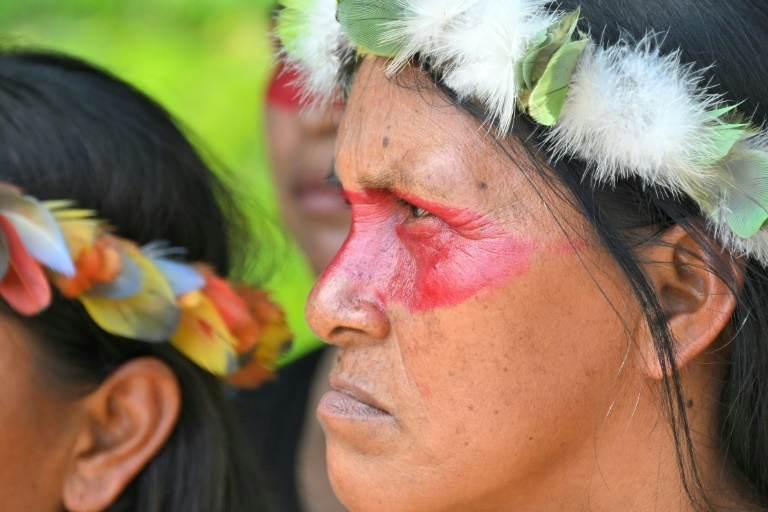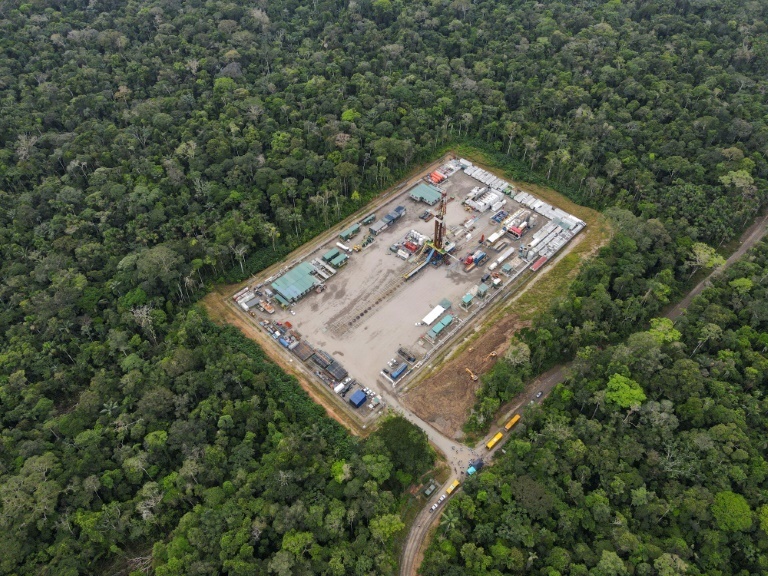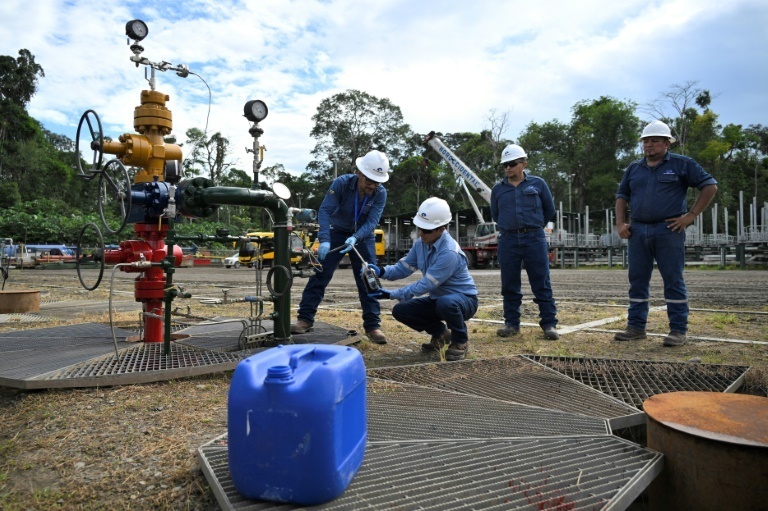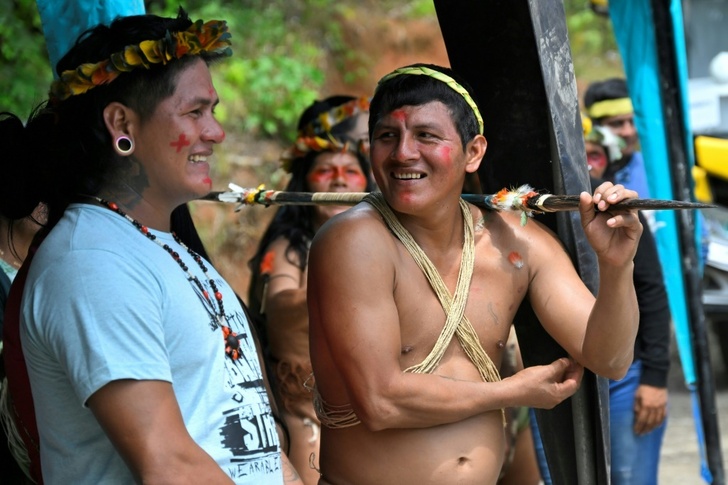A group of Indigenous Waorani women give a war cry warning that environmentalists are not welcome in their part of the Ecuadoran Amazon, where an oil field operates partly on a protected reserve.
"We will not allow 'kowori' (strangers)... to enter," said Waorani leader Felipe Ima, translating the belligerent words of the group of seven women from the Kawymeno community that supports oil extraction at the nearby Ishpingo field.
The community is pitted in a battle of wills against environmental group Yasunidos, which has been fighting for a decade for a referendum on leaving the oil underground.
In May, Ecuador's Constitutional Court allowed the request, and a plebiscite has been scheduled for August.
Escorted by a spear-wielding warrior, the women from Kawymeno hold hands and dance in little clothing and feather crowns at the entrance to Ishpingo A platform.
They demand that any consultation should be with "the owners" of the land, and not with anyone that is "not even from the territory," explained Ima.
In Ecuador, the Constitution recognizes Indigenous people's "collective ownership of land as an ancestral form of territorial organization."
The State, however, maintains control over anything under the soil.
Ishpingo together with the nearby fields of Tiputini and Tambococha form the so-called ITT block, or block 43, which holds an estimated 282 million of the South American country's proven crude reserves of 1.2 billion barrels.

This came after the government of then-president Rafael Correa failed to persuade the international community to pay former OPEC member Ecuador $3.6 billion not to exploit the ITT block to protect the Amazon and help curb climate change.
In April last year, the government announced pumping has also started at Isphingo.
- Pays for education, healthcare -
At the site protected by women in the dense, green jungle, stands one of twelve platforms of the ITT block that contributed 57,000 barrels per day (bpd) to Ecuador's total production of 464,000 bpd from January to April.

The Waorani community of Kawymeno, a journey of about four hours by foot and canoe from Ishpingo, is near the border with Peru.
Its 400 inhabitants have declared themselves defenders of the oil activity and its windfalls they say make up for the absence of government services.
"If there were no oil industry, we would not... have had education, health, family welfare," says Panenky Huabe, leader of the village where many work in the oil sector.
- Black gold benefits -
Besides being among the most biodiverse areas on Earth, the million-hectare (2.5-million acre) Yasuni park is home to two of the world's last uncontacted Indigenous populations.
It also holds oil fields that started operating before the ITT block.
"We see how extraction has been besieging the Yasuni for many years, since the 1970s when exploitation began," Yasunidos lawyer and spokesman Pedro Bermeo told AFP.
"Basically, the (block) 43 is the only one with a part (of jungle) that remains to be saved," he said.

In 2019, the Waorani of Pastaza won a historic court ruling that prevents the entry of oil companies on 180,000 hectares on their territory.
But at Ishpingo A in Orellana, oil worker Akao Yetebe -- also a Waorani -- insisted "we will continue working" because "black gold benefits big cities, teachers, education, health, everything."
State-owned Petroecuador is authorized to operate on about 300 hectares of the Yasuni for its ITT block.
So far it has used about 80 hectares, generating $4.2 billion for the State -- some $1.2 billion in 2022 alone.
If the "Yes" wins in next month's referendum, "losses will be substantial," said Petroecuador manager Ramon Correa -- some $16.4 billion in projected income as well as jobs and investments already made.
sp/pld/db/mlr/st
© Agence France-Presse
Your content is great. However, if any of the content contained herein violates any rights of yours, including those of copyright, please contact us immediately by e-mail at media[@]kissrpr.com.

Source: Story.KISSPR.com

